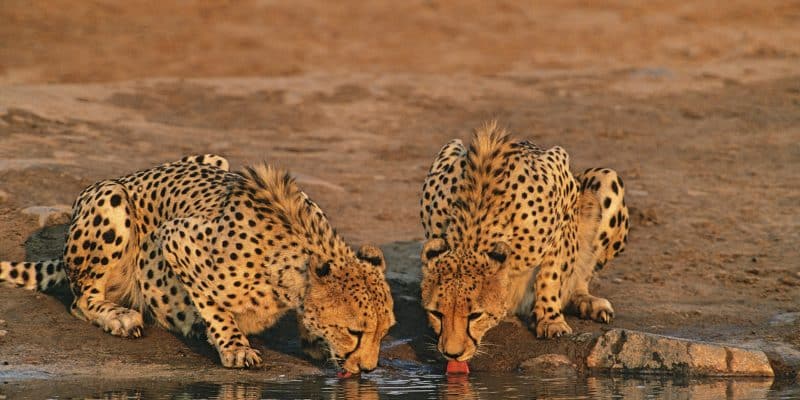South Africa is embarking on an ambitious project to reintroduce cheetahs to India. From February 2023, more than 100 South African cheetahs will be transferred to the country of Gandhi. The cost of the project is €10 million over five years.
In February 2023, a first group of 12 South African cheetahs will be flown to India. The announcement was made on 26 January 2023 by the South African Department of the Environment. “The plan is to translocate a further 12 each year for the next eight to 10 years. The aim is to sustain a safe and viable cheetah population on Indian soil,” the department said in a statement.
Negotiations on the transfer have been long. They accelerated in 2020 when India’s Supreme Court gave the green light to the import of African cheetahs, a different subspecies from the one once found in the country. This was an Asian subspecies, declared extinct in 1952, due to habitat destruction and poaching targeting the spotted fur of the world’s fastest animal (120 kilometres per hour), just ahead of the African antelope (97 kilometres per hour).
However, the reintroduction project is controversial. Specialists, notably at the University of Pretoria, criticise the cost of the project – nearly 10 million euros over five years – as well as its implementation, believing that the cheetahs, a species classified as vulnerable, will have little chance of surviving once they are released into the wild on their new home ground.
Read also-NAMIBIA: The government delivers eight cheetahs to India for reintroduction
The first 12 South African cheetahs to be released in India will join eight others from Namibia, more than 8,000 kilometres from their homeland. The latter arrived in India in September 2022 in the first ever relocation of cheetahs from one continent to another. The cats were introduced to Kuno Park, 320 km south of New Delhi, which is known for its abundant prey and grasslands.
Boris Ngounou







